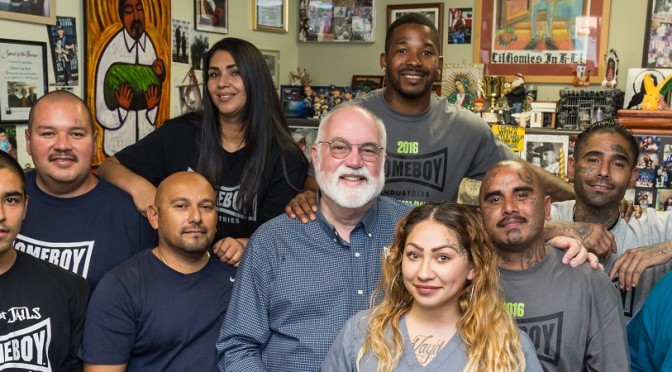Caitlin Trussell with Augustana Lutheran Church on April 5, 2020
[sermon begins after this Bible reading]
Matthew 21:1-11 When they had come near Jerusalem and had reached Bethphage, at the Mount of Olives, Jesus sent two disciples, 2saying to them, “Go into the village ahead of you, and immediately you will find a donkey tied, and a colt with her; untie them and bring them to me. 3If anyone says anything to you, just say this, ‘The Lord needs them.’ And he will send them immediately.” 4This took place to fulfill what had been spoken through the prophet, saying,
5“Tell the daughter of Zion, Look, your king is coming to you,
humble, and mounted on a donkey, and on a colt, the foal of a donkey.”
6The disciples went and did as Jesus had directed them; 7they brought the donkey and the colt, and put their cloaks on them, and he sat on them. 8A very large crowd spread their cloaks on the road, and others cut branches from the trees and spread them on the road. 9The crowds that went ahead of him and that followed were shouting,
“Hosanna to the Son of David! Blessed is the one who comes in the name of the Lord! Hosanna in the highest heaven!”
10When he entered Jerusalem, the whole city was in turmoil, asking, “Who is this?” 11The crowds were saying, “This is the prophet Jesus from Nazareth in Galilee.”
[sermon begins]
Ordinarily on Palm Sunday, we tackle the whole Passion story from Jesus’ palm parade into Jerusalem right onto the cross and into his burial in the tomb. I can’t speak for you all right now, but my mind’s at a saturation point and I find smaller doses more helpful. So, a smaller dose it is. The rest of the story will unfold this week on Maundy Thursday and Good Friday.
In the story today, the people who came to Jerusalem with Jesus are the crowds who scatter palm branches and cloaks on the ground in front of him as he parades into Jerusalem on a colt and a donkey.[1] Earlier in Matthew’s gospel, Jesus knows what’s ahead of him in Jerusalem.[2] He’s been telling his followers what’s going to happen when he gets there. In other Bible stories, Jesus is often vague and mysterious. Not this time. His followers, the “crowds” who went ahead of him into Jerusalem throwing palm branches and cloaks, knew Jesus would be killed. It was the city folk in the turmoil of Jerusalem who didn’t know. These city folk ask, “Who is this?” It’s a fair question given the turmoil created by crowds of Jesus followers along with Jesus himself, the donkey, colt, palm branches, and cloaks.
“Who is this?” In Matthew’s gospel, God’s holiness is given through Jesus to people who didn’t fit the definition of holy or even worthy of holy consideration. Earlier in Matthew, Jesus said, “Blessed are the poor in spirit…blessed are those who mourn…blessed are the meek… blessed are the merciful…blessed are those who are persecuted….blessed are you when people revile you…”[3] Jesus’ words were NOT describing a typical in-crowd back in the Bible’s day. Jesus widened the circle – pulling in people who previously had no business showing up there. Jesus made holy the very people who were not considered holy. Making the unworthy people holy made the powers that be unhappy – murderously unhappy – with Jesus.
The people following Jesus, waving branches and throwing cloaks, were drawn into the expanded circle of previously unimaginable holiness. Perhaps that was part of their enthusiasm on entering Jerusalem. The enthusiastic gratitude of people who didn’t get it but were on their way to understanding what Jesus was doing for them.
When reading the gospel to write today’s sermon, the first thing that came to mind was the crowd lauding Jesus; but instead of palm fronds and cloaks, I saw masks and white coats being waved in the air and thrown down on the road. In the last couple of weeks, there’s been praise heaped on first responders and hospital workers of all kinds. It’s a complicated praise. Most of us don’t totally get what these paragons of healthcare virtue do but most of us are on the way to understanding it. These people, by their chosen work, are at greater risk to themselves and are also the very people we hope will be around to take care of us if we get sick.
The symbols of their self-sacrifice have become masks and personal protective equipment. As PPE supplies catch up to demand, a variety of manufacturers have converted their production lines into ventilator and N95 mask components, distilleries are making hand sanitizer, and seamstresses both amateur and professional have begun making homemade masks to help regular people and to help healthcare workers prolong the life of their N95s. Many of the rest of us are simply trying to stay out of the way to flatten the curve and lessen the demands on hospitals at any given point in time. These efforts acknowledge the daily risk of healthcare workers. They’re also the tangible, complicated praise of a society depending on their care when it’s most desperately needed. We are at the mercy of healthcare workers who are gifted to heal. Our praise is a complicated praise, indeed!
Please hear me say that these folks deserve our utmost respect and thoughtful actions. The videos of gratitude for them are overwhelming to watch. The stories from my family, friends, and colleagues in hospitals are awe-inspiring. I also want to encourage us to acknowledge their humanity, make space for their fear, and do what’s possible to mitigate the danger they face daily. Our adoration of folks, complicated by our potential need for them, is as tricky for the receivers of that praise as it is for those of us giving it. What I’m trying to say is that a self-sacrificial act is, by definition, one in which the person doing the giving understands there is no capacity to make up for what is lost in the gift.
On Palm Sunday, we can barely understand what the humbled, servant king Jesus was headed towards. He knew and understood that God’s love was big enough for the whole world and personal enough to be experienced by each person. He knew that his ministry of sharing God’s love would not go unnoticed. For crying out loud, there were enough people cheering him on his way into Jerusalem to create turmoil in the city. These people had been touched by Jesus’ ministry of holy inclusion during a time when they had been, at best, ostracized, and, at worst, tortured and killed. They knew that his ministry to them put him in the murderous path of people who felt that they knew better how to apply God’s love to only the appropriate, worthy people.
Regardless of whether or not we understand the lengths to which God goes to get our attention; regardless of whether or not we can see that Jesus’ entry into Jerusalem had only one possible outcome given those who would do anything to maintain their power; and regardless of whether or not we can hold the complexity of a non-violent God who brings redemptive grace to shame-addled people; we can still offer our complicated praise to Jesus. Or, let’s try something else…we could simplify our praise because maybe it’s not complicated at all.
Our praise of Jesus is not transactional. It’s we who make it complicated because we often think of giving in terms of what we’ll receive in return. Give-and-take or quid pro quo are null and void. Our praise does not inspire greater love on God’s part. Either the love of God through Jesus is unconditional or it’s not. Either God so loves the world, the whole world, or God doesn’t. We’re the ones who complicate it by shaming ourselves or other people into unworthy categories. Thankfully, Jesus’ grace is not distributed based on a graded curve that rates only some of us as worthy of God’s love. Jesus flattens the curve all the way flat. It’s appalling to stop and think about who’s included next to us on the flat line. Appalling enough that what happens next to Jesus in Jerusalem is no surprise. It’s simply worthy of our praise.
Blessed is the one who comes in the name of the Lord. Hosanna in the highest!
Now receive this blessing…
God almighty send you light and truth to keep you all the days of your life.
The hand of God protect you, the holy angels accompany you,
and the blessing of almighty God, the Father, Son, and Holy Spirit +,
be with you now and forever. Amen.
________________________________________________________
[1] John Petty, retired pastor from All Saints Lutheran Church, Aurora, CO. Commentary on Matthew 21:1-11. March 30, 2020. https://www.progressiveinvolvement.com/progressive_involvement/2020/03/palm-sunday-matthew-21-1-11.html?fbclid=IwAR3kZnjv3wuDSvn6x4iftOIMR08mPNT-6PDlJTiJxYVsnaepBa8fywsDJHI
[2] Matthew 16:21-23; 17:22-23; and 20:17-19
[3] Matthew 5:3-11

![A Complicated Praise Simplified on Palm Sunday [OR First Responders and Hospital Workers Are Human Too] Matthew 21:1-11](https://caitlintrussell.org/wp-content/uploads/2020/04/65929-gettyimages-sidney-de-almeida.1200w-palm-sunday-672x372.jpg)

![Pops, Purity, and Promise [I Promise It’s Not What You Think] Matthew 5:1-12 and 1 John 3:1-3](https://caitlintrussell.org/wp-content/uploads/2017/11/1726618-John-Green-Quote.Perfect.Flawed.Loving.sermon-Caitlin-Trussell-672x372.jpg)
![Suffering Defies Logic [OR Mondo Cozmo Answers the Religious Question] Matthew 16:21-28 Romans 12:9-21 Exodus 1:22-2:10](https://caitlintrussell.org/wp-content/uploads/2017/09/theatlantic.umbrella.hurricane-harvey.sermon-Caitlin-Trussell-672x372.jpg)

![Divine Mercy is the Last Word [OR Give Up on Divine Punishment Already] – Luke 13:1-9](https://caitlintrussell.org/wp-content/uploads/2016/02/fig-tree-003.sermon-caitlin-trusselljpg-672x372.jpg)